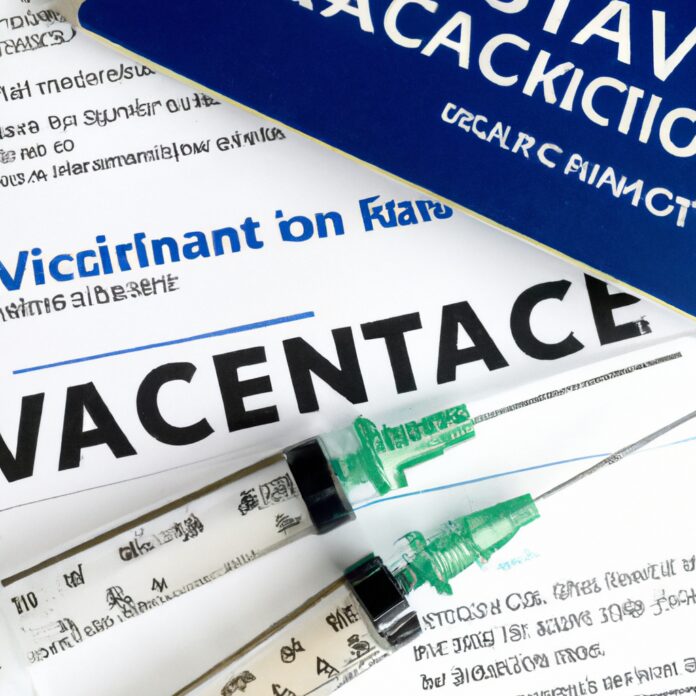Traveling to far-flung corners of the world can be wonderfully rewarding, but it’s also important to take care of yourself. Preparing for your trip abroad with an eye to health and safety is wise, and one way to do that is getting travel vaccinations. Taking the time to research which vaccinations are recommended for your destination could be the key to ensuring a safe and enjoyable journey.
1. Be Prepared! A Guide to Travel Vaccination Planning
Before traveling, it is essential to get vaccinated in order to stay healthy and minimize risk. Here are some tips to make sure all of your vaccine needs are covered.
- Identify your risks: Check if you are a risk for any diseases in the region you’re visiting. The CDC website provides information on where to find a travel health specialist in your area.
- Check existing immunizations:Verify if you are already up-to-date on standard shots, such as influenza, tetanus, and MMR. It’s also important to get boosters, if needed.
- Get informed: Research the details of other vaccinations you may need, like other types of hepatitis, Japanese encephalitis, yellow fever, or polio. Your doctor’s office or a travel health specialist can also recommend additional travel immunizations.
Once you know what you need, schedule an appointment at least 4 to 6 weeks before you travel. This will ensure your body has enough time to develop immunity.
Be sure to discuss any medical conditions or allergies you may have before receiving any vaccinations. Additionally, be sure to inform your doctor or travel health specialist if you are pregnant or immunocompromised.
2. Safeguarding Your Health Abroad – Don’t Skip Vaccines!
Vaccinations are an important part of any travel plan. Whether you’re heading overseas for a business trip or a holiday, it’s essential to make sure you’re up to date with any required inoculations. Going abroad without the recommended vaccines could put you at risk for serious illnesses or even death.
The CDC’s Traveler’s Health Programme provides comprehensive information on which vaccines are required for which countries, with a colour-coded map determining which immunizations you need in order to stay safe during your travels.
When planning your trip, consider the following:
- The length of your stay: Some jabs require several doses spaced apart.
- The types of activities: You may need a different set of vaccinations if you’re engaging in outdoor activities such as hiking, camping, or scuba diving.
- Your age and health: Elderly people with pre-existing conditions may need to get additional inoculations.
Lastly, it’s recommended to schedule a consultation with a health specialist at least four to eight weeks before departure. This will give your body enough time to build immunity before you travel. Don’t forget to bring along a paper copy of all your immunization records with you; some countries will require proof of vaccinations to enter and exit the country.
3. Vaccinations for Common Risks When Traveling
When you’re thinking about taking a trip, part of your preparations should be planning for the health risks associated with your destination. With the help of vaccines and other preventive measures, you can significantly reduce the chances that you get sick and ruin your adventure. Here are three commonly recommended vaccinations for travelers.
- Hepatitis A is a viral disease that can cause nausea, vomiting, fever, and jaundice. A hepatitis A vaccine can protect you for up to 10 years. It’s recommended for visitors to areas with a high risk of the virus.
- Rabies is a virus that affects the nervous system, and can be fatal if left untreated. The rabies vaccine should be administered before you travel to places where it is prevalent. Vaccinations will provide protection for up to three years.
- Typhoid Fever is an infection caused by bacteria, and can cause high fevers and severe headaches. It’s recommended for travelers visiting developing countries. The vaccine should be taken two weeks before departure, and can provide protection for up to three years.
In addition to these vaccines, it is also important to practice safe hygiene habits and seek medical attention promptly if you experience any symptoms of these illnesses. By taking these preventive measures, you can avoid potential risks and enjoy your trip without any health worries.
4. Navigating the Options – Which Vaccines Should You Choose?
Given the sheer amount of vaccines available, making an informed decision about which ones are best suited to your needs can be overwhelming. Here are a few measures you can take to navigate this terrain, and make sure you get the right vaccinations.
- Research: Equip yourself with the expertise needed to make an informed decision. Read up on the various types of vaccines, their components, including the mode of administration, safety and efficacy.
- Consult a Health Professional: Consult your physician to gain a deeper understanding of the various vaccinations, as well as a reliable opinion on which ones are best for you, given your particular lifestyle and circumstances.
It’s important to remember that being vaccinated doesn’t only benefit you, but also your whole community. By reducing the rate of contagious diseases, you’re helping to protect yourself, your family, and all those around you.
When it comes to choosing your vaccinations, it’s wise to bear in mind the various diseases and illnesses your body may be susceptible to. Also consider the options available, and the implications of getting or not getting the immunization. Discuss these matters with a concerned and knowledgeable health professional for a full and informed assessment.
5. Travel Vaccines – Striking a Balance Between Convenience and Safety
When travelling abroad, ensuring that you have the necessary vaccines can be a daunting task. As well as making sure that the pertinent vaccines are administered, it is important to strike the balance between convenience and safety. Here we discuss how to achieve this.
Talk to a medical professional. Consulting a doctor prior to travelling can be a valuable opportunity. They will be able to advise on which vaccines are both necessary and optional, as well as provide advice on what safety measures should be taken during travel. However, with busy lifestyles and packed schedules, getting in touch with a doctor in a timely manner can be difficult.
Do your own research. Doing research online is a great way to become informed. Researching what vaccines are necessary for a particular region, can help narrow down which specific vaccines should be taken. Especially in the case of convenience, it is important to consider which of the recommended vaccines are the most pressing.
- Do not let procrastination affect your decision.
- Write down all the important details, including dates and expiration.
- Always notify your doctor of any symptoms.
Safety first. Keeping safety as the core goal, remember to take into consideration all that has been discussed so far. Balancing convenience and safety is possible but research, preparation and a healthy dose of common sense are key. With the necessary measures in place, you should be ready and able to begin your travels with utmost peace of mind.
Traveling abroad is a great way to open yourself up to the world. It brings with it fantastic opportunities and experiences that can’t be found anywhere else. But in order to take advantage of these experiences in the safest way possible, travelers must be prepared with the right travel vaccinations. They’re not just for your health; they are for your peace of mind too. Enjoy the journey, and remember to keep your vaccines up to date.





